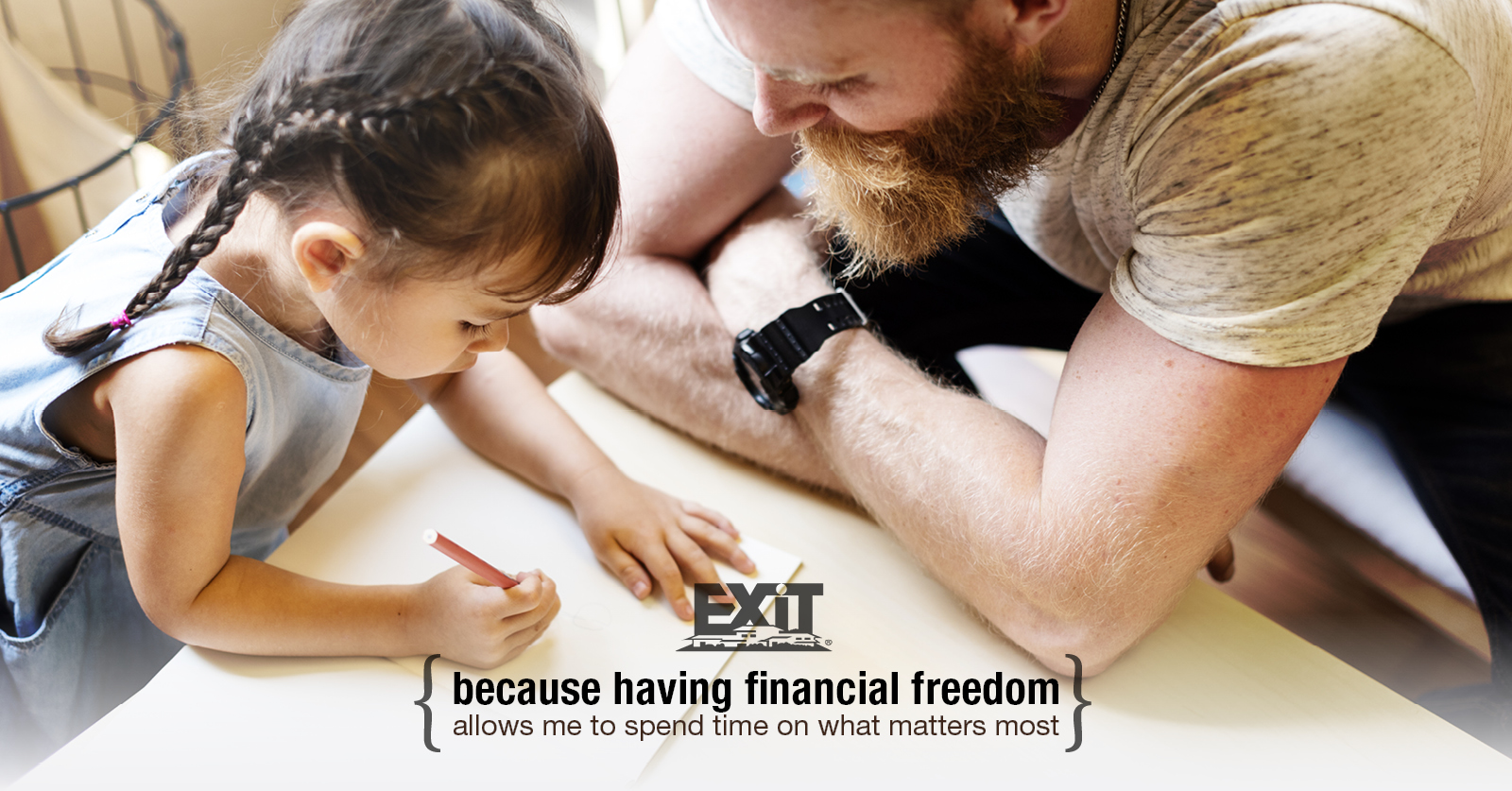May 15, 2020
Is this a time to Buy real estate? You must have heard the saying “Cash is King”, right? Well, for real estate it is.
By Sebastian Manes – Broker Principal / May 15, 2020
We are living an unprecedented situation. We have no experience in this matter, and most importantly, we cannot predict when the situation will be contained. We do not know when will be allowed to get back to normal, and if “normal” (as we know it) will still be there. Sellers and buyers of real estate are dealing with uncertainty. I have heard buyers want to pull out of contracts, sellers with contracts wants to enforce them, and all the rest are on stand-by. If you are in the market to buy real estate you might want to consider taking a closer look at the market.
The fact of the matter is that real estate will still exist after COVID-19, and like I heard many times in various meetings what became a popular phrase amongst diplomats, economists and investors: “never let a good crisis go to waste” (Rham Emmanuel, Pres. Obama Chief of Staff, 2010). Although we are not there yet, we may be in the near future. I want to make sure that you don’t miss the opportunities that may be available if you have tolerance for risk.
The real estate market is taking a hit. There is no doubt about that. How deep will only depend on how long it will take our scientists, laboratories, governments and specialists involved to contain the situation and allow the world to get back to some kind of normalcy. If you were, or are still, thinking about making a move in the real estate market, what would you do? Are you a cash buyer? Maybe this is your chance. Let’s zoom in.
Prior Crisis (2008):
The market crash of 2008 can give us some insight as to what happens during a situation of uncertainty and panic. On the price index chart below, you can see how the prices in that year (2008) were at the top of the market before they crashed. Today we are at the peak on market prices again. However, the current situation is not similar to that of the last market crash. As a matter of fact, there is no crash yet and there may not be. It is matter of time. Back then home prices were at top of the market, it was a seller’s market, mortgage rates were historically low and access to funding was easy. It was all good. Only a very few could anticipate what was coming (unfortunately I was not one of them). I want to believe that if humans are rational human beings they have to learn from past experiences and apply the knowledge to the present situation.
So what happened? Properties where in such a high demand that seller’s were selling above market values. Buyers were taking a first mortgage and some even a second one because mortgage companies and banks were flexible, and the terms were very favorable. One day in 2008, the bubble burst. No more money, no more buyers. Those who did not sell until then, were out of luck. If you had bought a property “using other people’s money” well, that other person was going to have a hard time getting their money back. We all know what happened after. Unemployment, foreclosures and bankruptcies. Home prices dropped more than 50% and very few real estate transactions were closed. But who got out of that crisis without harm and collected the benefits that came after? Yes, you know the answer: “The Cash Buyers”.
The cash buyers, begun to pick up properties on the market for prices that where 40,50, and sometimes 70% of the market value pre-crisis. What did they do? They just held on to those properties and generated what we call passive income (rental income). Fast forward 5 years, the same properties grew in value as expected and they made small fortunes.
Current situation:
Today, the economic fundamentals are a somewhat similar. Interests rates are at historic lows, but access to funding is more restricted and selective. Buyer interest has dropped more than 50% according to the National Association of Realtors (NAR). Unemployment rate has just been given a blow on the head with experts estimating close to 13% rate and rising, the inventory of homes for sale is at historic lows, making it a “seller’s” market (attention here!), the market prices are at historic highs because of the seller’s market condition and days on the market is 45 on average. You would think that these are all signs of a healthy industry. Well, think again. The only number we know about the industry post the COVID-19 effect is the unemployment filing number published April 2, 2002, which is stunningly high. What do you think that comes next?




As of February 2020, we were already able to identify a peak in the industry and this should be a red flag for sellers. With the prices at the top, conventional buyer (those that need a mortgage account for more than 30% of the market and the rest are not necessary cash buyers) exiting the market, and unemployment on the rise, I should think that sellers will start questioning their desire to hold on to the assets if they have the opportunity to cash out in a quick closing. Let’s look at the latest data form the National Association of realtors.

When you look at this final chart from the Housing Report of the National Association of Realtors (NAR), you can see that cash sales have increased from 2019 to 2020. That is not because the interest rates are higher, but because buyers have more negotiating power in a market that is finding its plateau even before the COVID-19 pandemic. At the same time the “First time Buyers” with 32% in February had remained the same compared to last year, another red flag, when the market is favorable for first time buyer in terms of financing and government programs. Unfortunately, this is the group that most likely will exit the market and probably the most affected in the job market.
If the sellers out there have learnt anything about the real estate market in the past 10 to 15 years, then they should be looking for cash buyers to unload their properties before they miss the bus and have to hold on to their properties for much longer, or sell them to the banks. Because I don’t think that the scenario is the same as that of 2008 and as of today, we don’t expect a massive foreclosure movement, there will be motivated sellers willing to negotiate a better price to sell their property for cash an get out, just like a stock broker decides to go short on a stock that is not performing well.
As time goes by, the market situation will get worse. Real Estate investors know this. With the last 10 years of growth of the real estate market, many people were buying real estate and getting into debt (of all kinds! even loading up their credit cards to make renovations) with the hope to make an extra income.
Here is a real story. Just a month or so before the pandemic exploded, we helped a lady from New York buy a property to “flip” (renovate and sell) in Florida. She was very excited to do it. Based on her numbers, it was a good investment opportunity. She was on track to make a nice margin to supplement her income from her NY job. She bought the house closing by the end of January, 2020. She mortgaged the property and used some cash she had saved. For the renovations, she loaded up all her credit cards. The total renovation cost was close to $45K, which was not too expensive considering the size and value of the home. The renovations were finished by the end of February. By the time she was ready to put the house on the market for sale, COVID-19 had already landed. Today, she is trying to pay her credit cards and mortgage with the income from her job. This situation is only attainable for a very short period of time. Suffice to say that she is hoping to get an offer for the house soon and be able to close at least at a break even price. That will allow her at this point to pay her mortgage and reduce her credit card debt as much as possible. Forget about the expected return on investment.
Like the lady from NY above, there are many people trying to cash out their investments. They cannot hold their property with the uncertainty of the current situation. Even if the banks allow for a 30-60 day grace period for paying the mortgages, what happens after that? It is time to do some research and explore the market for sellers that need to cash out. If you are a cash buyer and can hold the property for long term and make it a passive income “cash cow”, with the added bonus of the property value appreciation, then this might be your opportunity.

Broker Principal and Managing Director, EXIT REAL ESTATE RESULTS , Manes Realty Group, North Palm Beach, FL.Sebastian has been a real estate investor and broker since 2011. Prior to that he developed an extensive corporate career in the automotive industry and had the opportunity to live and visit many countries around the world. He studied abroad and holds a BS in International Business, a Master Degree in Finance and a MBA from UCEMA, Buenos Aires, Argentina. https://www.linkedin.com/in/swmanes/

